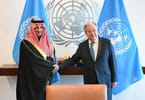Russia’s Supreme Court has ordered the liquidation of a distinguished Russian non-governmental organization dedicated to preserving the memory of millions who died under communist rule, marking the latest step in a sweeping crackdown on the country’s human rights activists, independent media and opposition supporters.
During the hearing, a representative of the Prosecutor General said that Memorial was seeking to rewrite the history of the Soviet Union.
According to the Russian government’s prosecutors, the group “is almost completely focused on distorting historical memory, primarily about the Great Patriotic War,” as WWII is known in Russland, “creates a false image of the USSR as a terrorist state” and “attempts to whitewash and rehabilitate Nazi war criminals who have the blood of Soviet citizens on their hands… probably because someone is paying for this.”
Last month, prosecutors also accused the Moscow-based Memorial Human Rights Center and its parent structure, Memorial International, of violating Russland’s “foreign agent” law, asking the court to dissolve them.
Russia’s Ministry of Justice and its media regulator Roskomnadzor have both backed the claims from prosecutors, with a spokeswoman for the communications watchdog saying that “brazen and repeated violations of the law” had been “convincingly proven beyond question” ahead of the court ruling.
In a ruling issued on Tuesday, a judge decreed that Memorial, already registered as a ‘foreign agent’ over its links to overseas funding, would no longer be able to operate in Russia after authorities said that it had repeatedly broken the law.
Russian President Vladimir Putin has previously said that the country’s ‘foreign agent’ law “exists simply to protect Russia from external meddling in its politics.”
However, the rules have come under fire from human rights and journalist groups, who are saying that Russian ‘foreign agent’ legislation is just a part of Russian government’s “persecution of independent journalism in the country.”
Memorial, which has more recently spoken out against the repression of critics under Russian President Vladimir Putin, dismissed the lawsuit against it as politically motivated.
Memorial had been compiling a list of political prisoners, including Putin’s most prominent domestic opponent Alexey Navalny, whose political organizations were shut down this year.
In October, it said the number of political prisoners in Russia had risen to 420 compared with 46 in 2015.
Irina Shcherbakova, a senior member of Memorial, said Kremlin was sending a clear signal by banning the group, that is ‘We are doing whatever we feel like with civil society. We will put whoever we want behind bars. We will close down whoever we want’.”
“The dictatorship is becoming ever more repressive,” she said.
A lawyer for the group said that it would appeal, in Russia and at the European Court of Human Rights.
“This is a bad signal showing that our society and our country are moving in the wrong direction,” said Memorial Board Chairman Jan Raczynski.
Reacting to the court decision, Marie Struthers, Amnesty International’s Eastern Europe and Central Asia director, condemned the move, saying that by “closing down the organization, Russian authorities trample on the memory of millions of victims lost to the Gulag.”
Struthers said the decision to close down Memorial should be “immediately overturned” as it represented “a direct assault on the rights to freedom of expression and association” and “a blatant attack on civil society that seeks to blur the national memory of state repression”.
In a statement following the decision, the Director of the Poland-based Auschwitz Memorial Museum, Piotr Cywiński cautioned that “a power that is afraid of memory will never be able to achieve democratic maturity.”























